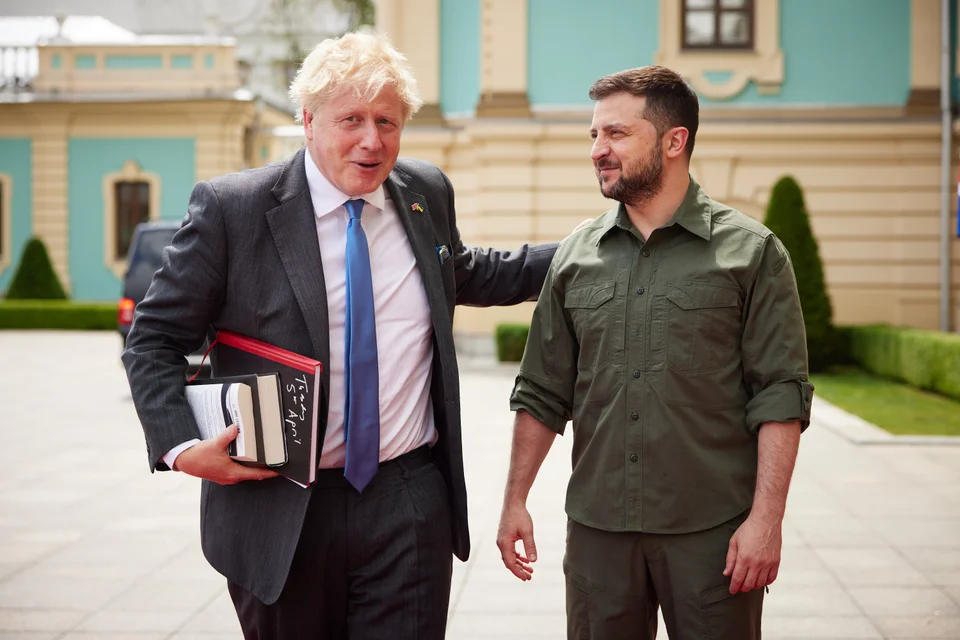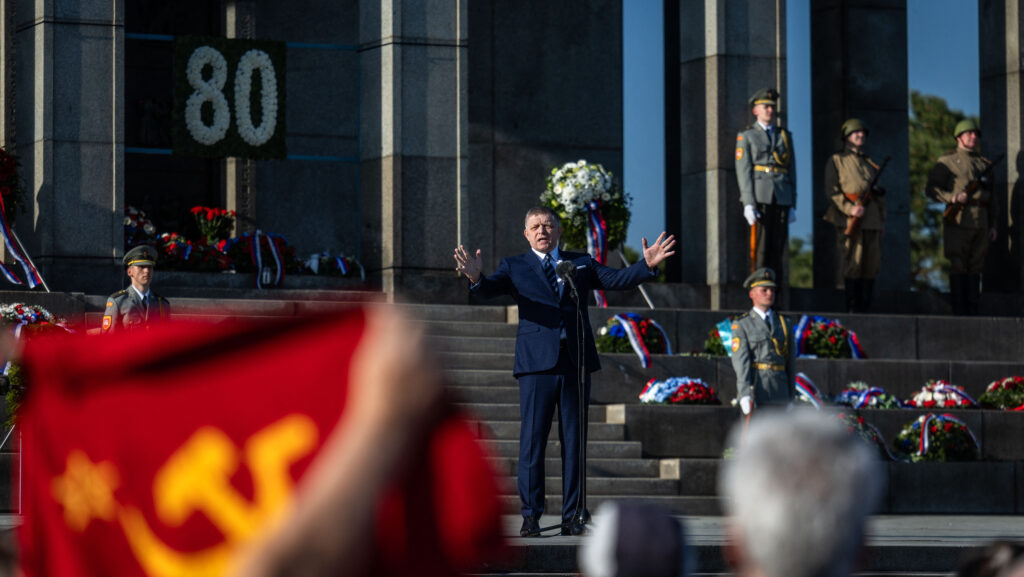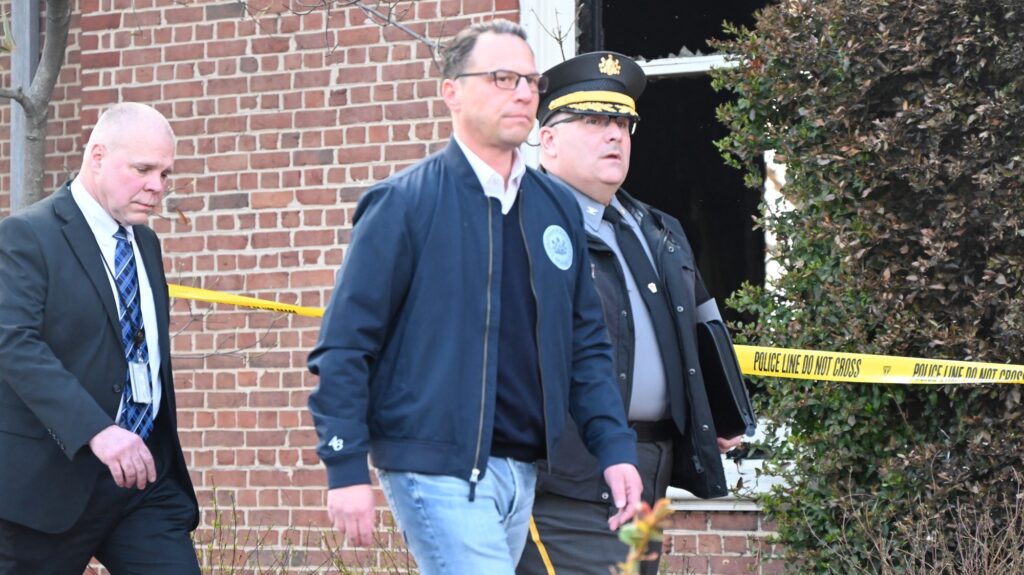Just days after its beginning, it was more or less clear to everyone that the ‘special military operation’ in Ukraine would turn out to be the largest and possibly bloodiest military campaign in the history of Europe since the end of the Second World War. Since then, the all-out invasion of Ukraine has not only pushed the lives of those directly affected into utter chaos, but also destabilized the energy markets, and disrupted many of the essential supply chains worldwide, setting the stage for unprecedented economic crises in the next months and years.
Amid all these uncertainties, on 9 April 2022—meaning just forty-two days into the now half-a-year-long invasion—Boris Johnson, then prime minister of the United Kingdom, surprised the world by paying a visit to Kyiv and meeting President Zelensky in what The Guardian described as ‘utmost secrecy’. Coincidentally (or not), the visit also happened to be during a time when both sides were preparing for a landmark Putin-Zelensky meeting, with a good chance of starting effective peace negotiations. Not much had been reported on the details of their conversation back then—except for Johnson’s endless praise for the heroism of Ukrainians, as well as the reassurance of his support for the war-torn country—yet one Ukrainian newspaper, the state-run Ukrainska Pravda published a curious piece on it almost a month later, with uneasy implications for the British PM.
In the Pravda article, the author Roman Romaniuk shared the following revelations:
‘According to Ukrainska Pravda sources close to Zelenskyy, the Prime Minister of the United Kingdom Boris Johnson, who appeared in the capital almost without warning, brought two simple messages. The first is that Putin is a war criminal, he should be pressured, not negotiated with. And the second is that even if Ukraine is ready to sign some agreements on guarantees with Putin, they are not. Johnson’s position was that the collective West, which back in February had suggested Zelenskyy should surrender and flee, now felt that Putin was not really as powerful as they had previously imagined, and that here was a chance to “press him.” Three days after Johnson left for Britain, Putin went public and said talks with Ukraine “had turned into a dead end”.’
Even if Zelensky was ready to end the war by signing a bilateral peace agreement with Putin, Boris Johnson was not
The implication here is apparent. Even if Zelensky was ready to end the war by signing a bilateral peace agreement with Putin, Boris Johnson was not. Of course, it is not like the UK would have been able to pressure Kyiv into continuing the conflict all by its own: according to the Pravda, Johnson met with Zelensky as an envoy of the collective West, conveying its collective message. As to why Johnson was the one to deliver it we can only speculate, but given the fact that the former PM had a hard time keeping his office as the infamous Partygate capped off a series of other scandals tied to him and his closest cabinet members, one can easily imagine why he may have had more skin in the game than others. War is a perfect distraction, after all, even if it didn’t work out for him in the end. Now, we are unlikely to ever find out how President Zelensky reacted to Johnson’s ‘advice’, but the fact that the Russian-Ukrainian negotiations came to an end just three days after can give us a pretty good idea.
Back in May, the original article made its usual strides in the western press and social media alike, but it came to be forgotten eventually. After all, however damning it was to Boris Johnson and the West in general, the narrative had two major problems. One was that we had no way to confirm the validity of these claims, although it is certain that it was not the usual Russian misinformation, simply because Ukrainska Pravda is one of the major pro-government and pro-West newspapers of Ukraine. But then, Johnson’s responsibility in halting the peace talks was further hinted to by the PM himself when he told French president Emmanuel Macron that during his visit he had ‘urged [Zelensky] against any negotiations with Russia…, but stressed that this was a decision for the Ukrainian government’, as reported by an official British Government press release.
The second problem was that even if the meeting had happened the way the Pravda described it, we couldn’t have known how close Ukraine actually was to making peace with Russia. The bilateral meeting between Zelensky and Putin was already scheduled, but as to what chances of reconciliation it actually held, we have simply had no idea. Until now, it seems. In Foreign Affairs’ latest issue, Fiona Hill, a former member of the Trump administration as a senior director of the National Security Council, now senior fellow at the Brookings Institution, wrote an extensive piece on Putin’s long-term geopolitical goals and the associated challenges the West will have to face.
In her article, Hill wrote the following:
‘According to multiple former senior U.S. officials we spoke with, in April 2022, Russian and Ukrainian negotiators appeared to have tentatively agreed on the outlines of a negotiated interim settlement: Russia would withdraw to its position on February 23, when it controlled part of the Donbas region and all of Crimea, and in exchange, Ukraine would promise not to seek NATO membership and instead receive security guarantees from a number of countries.’
The main takeaway here is that Ukraine and Russia did indeed complete their draft agreement at the time of the visit, and both sides were ready to go forward with signing the treaty. Hill used this point to underline her initial argument, saying that it shows that even though Putin had the opportunity to end the war then and there by reverting back to the pre-war status quo and accepting guarantees of Ukraine not seeking NATO membership—thus fulfilling his invasion’s primary role—he simply changed his mind and refused to continue the negotiations, because the real purpose of his war is the gradual recreation of the Soviet Union and he won’t stop for anything less. But the timeline of the events and Johnson’s role revealed by Ukrainska Pravda back in May might suggest that it’s actually the other way around. And if that is correct, then it means that—pressured by the UK and other Western powers – it was Ukraine, and not Russia, to pull out first of the peace talks.
This possibility (of Zelensky deciding against the peace because the West asked him to) is further supported by several facts. You might remember that the early weeks of the war saw the Russian forces making incredible advancements on multiple fronts, and were even able to encircle Kyiv, ready to besiege it. It looked like the Ukrainian capital would fall within days, ending the war with a decisive Russian victory. Except that it didn’t happen. Due to the heroic resistance of the local population and serious logistical problems, Moscow announced its withdrawal from the northern front in late March, completing it in early April.
Washington’s goal in aiding Ukraine is to ‘see Russia weakened’
With Russian forces in retreat, the West finally saw this moment as an opportunity to completely turn the tables. This was the time when notable Western figures visited Kyiv to meet with Zelensky one by one. Among them were Ursula von der Leyen, Olaf Scholz, Mario Draghi, Emmanuel Macron and, of course, Boris Johnson. One of the less-known visits to Kyiv towards the end of April was paid by US secretary of state Antony Blinken and secretary of defense Lloyd Austin to discuss the United States’ more serious involvement in the war effort. After their meeting with Zelensky, Austin told reporters that ultimately, Washington’s goal in aiding Ukraine is to ‘see Russia weakened’. Just weeks later President Biden signed the landmark $40 billion aid bill into law, which provided the bulk of the weaponry that kept Ukraine in the ring to this day.
Keep in mind that the aim of this article is not to give a definitive answer to any of the questions it brought up. It merely looks at the old and new information presently at hand and speculates on their implications. Real life and high politics are infinitely more complex than the simplified narrative I am presenting, and not a living soul has the complete picture. Yet, what these pieces of the puzzle suggest is something that’s worth exploring. If this is how it all happened, and the war really could have ended five months ago, but it didn’t because of the egoistic hubris of the West, I think the responsibility of those involved should be at least acknowledged. They may have believed that they were working toward a swift Ukrainian victory—which would also have been a western victory, strategically—but that didn’t work out, did it? And now we all have to bear the consequences.
As the Hungarian government pointed out many times, the primary job of the international community is to find a way toward peace, and not to gamble away the future of an entire generation by strategic bets that don’t even pay out in the end. Peace should always be our number one priority. The best time to start negotiating was yesterday, and the second best time is today. We should not let it slip away again.








